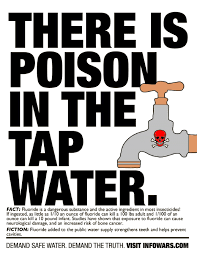
Breaking News
 Tucker Exposes Trump Would-Be Assassin Thomas Crooks' Social Media History, The FBI Coverup...
Tucker Exposes Trump Would-Be Assassin Thomas Crooks' Social Media History, The FBI Coverup...
 This Was A Major Red Flag In 2008, And Now It Is Happening Again!
This Was A Major Red Flag In 2008, And Now It Is Happening Again!
 Trump orders DOJ probe into Epstein's alleged ties with JPMorgan, Clinton and other Democrats
Trump orders DOJ probe into Epstein's alleged ties with JPMorgan, Clinton and other Democrats
Top Tech News
 Blue Origin New Glenn 2 Next Launch and How Many Launches in 2026 and 2027
Blue Origin New Glenn 2 Next Launch and How Many Launches in 2026 and 2027
 China's thorium reactor aims to fuse power and parity
China's thorium reactor aims to fuse power and parity
 Ancient way to create penicillin, a medicine from ancient era
Ancient way to create penicillin, a medicine from ancient era
 Goodbye, Cavities? Scientists Just Found a Way to Regrow Tooth Enamel
Goodbye, Cavities? Scientists Just Found a Way to Regrow Tooth Enamel
 Scientists Say They've Figured Out How to Transcribe Your Thoughts From an MRI Scan
Scientists Say They've Figured Out How to Transcribe Your Thoughts From an MRI Scan
 SanDisk stuffed 1 TB of storage into the smallest Type-C thumb drive ever
SanDisk stuffed 1 TB of storage into the smallest Type-C thumb drive ever
 Calling Dr. Grok. Can AI Do Better than Your Primary Physician?
Calling Dr. Grok. Can AI Do Better than Your Primary Physician?
 HUGE 32kWh LiFePO4 DIY Battery w/ 628Ah Cells! 90 Minute Build
HUGE 32kWh LiFePO4 DIY Battery w/ 628Ah Cells! 90 Minute Build
 What Has Bitcoin Become 17 Years After Satoshi Nakamoto Published The Whitepaper?
What Has Bitcoin Become 17 Years After Satoshi Nakamoto Published The Whitepaper?
Mainstream media finally admits: Adding fluoride to water a 'useless scheme' with no benefit

(NaturalNews) Fluoride, long added to our drinking water to improve oral health, is probably useless and even harmful to public health.
Its effectiveness is based on shaky science from the 1950s, yet big dental associations around the world keep promoting the addition of fluoride to our drinking water.
"The sad story is that very little has been done in recent years to ensure that fluoridation is still needed [or] to ensure that adverse effects do not happen," says Dr. Philippe Grandjean, an environmental health researcher and physician at Harvard University.
A little bit of history
In the early 1930s the link was made between fluoride and both mottling – or tooth staining – and stronger, healthier teeth. By the mid-40s the U.S. Public Health Service was convinced that artificial fluoridation of drinking water to 1.0 ppm would provide better oral health without causing mottling from over-fluoridation.
In 1945, they started to add fluoride to a test environment, and by 1950 declared the test a huge success, reporting a 50 percent reduction in cavities. (This number may be slightly misleading). At the same time, people started to improve their oral health practices, and there was an increase in the use of fluoridated toothpaste, too.
Since then, fluoridation of drinking water has been pushed upon us as necessary to improving oral health. It was recommended that every community without naturally occurring fluoride in their water add it to their water supply.
"They have to justify forcing this on people who don't want it – it's a violation of the principle of informed consent," Paul Connett, a Briton who taught chemistry at St Lawrence University, in New York, for 23 years, and helped set up the Fluoride Action Network in the US, told The Guardian. "You can couple that with the fact that once you put it in the water you can't control the dose or who it goes to. Also, is it effective? At least demonstrate that it's effective and then demonstrate that it's safe."
"Studies describing fluoride as a 'neurotoxicant' should ring alarm bells," he added.

 A WORLD OF DEBT
A WORLD OF DEBT
 Unbanked In A Connected World
Unbanked In A Connected World

